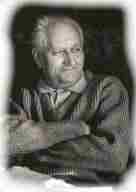Myth of Personal Autonomy
Jean Giono's Second Harvest (1930; Regain in French) intrigues me. There are plenty of stories about the perversion of 'traditional values' through urban migration. Pig Earth and Once in Europa by John Berger are excellent stories about persistence in the rural Alps (I am less keen on the third book in the series). Giono looks at the most perilous moment, when peasant life is about to disappear and the rural landscape is about to go feral. Jean Giono (1895-1970) was himself a Provençal, spending most of his life in the town where he was born. He rejected the notion that literature must be timeless: that diluted its social potential. He flirted with communism, although he was mostly a pacifist. During WWII he was imprisoned for several months.
The story takes place in Aubignane, an imaginary village that is a distant satellite of Sault in Provence. After two people decide to leave -- one for relatives, the other for the afterlife -- Aubignane is down to its last inhabitant, Panturle. The village is about to disappear completely. Panturle became less civilized, subsisting on small animals that he traps and remaining starches from last summers gardening. The buildings crumble all around, and the earth retakes the fields so that traces of plots are being lost to the human eye. There is no agriculture or civilization, just scavenging: one "had only to choose among the heap of broken houses, and find one with as much roof as possible."
It is not just the landscape that is becoming feral, but Panturle himself. His civility declines. He hides from two passers-by who happen through the town. Later they save Panturle's life, pulling him from a stream where he had fallen and was unconscious. The woman, Arsule (derogatory appellation), who is overworked and underappreciated by her 'man', decides to stay in Aubignane with Panturle.
Panturle commits to forming a household with Arsule, which requires him to invest in developing the landscape. Moreover, it directs him outwardly: he travels to (not so) nearby communities in order to invests in grain and simple tools. As he clear the land and cultivates the wheat, Panturle is placed in greater contact with the world around him, keeping him home separate from the markets. His wheat becomes distinguished for quality that modern techniques cannot achieve (they are designed for volume). Panturle is able to revive the village: new people are encouraged to settle there, and of course Arsule produces a child.
Nature, as in the novels of Ponten, is almost a character of its own. It does nothing to improve Panturle; and in his isolation, it is an obstacle. In particular, the wind in an intrusion into his isolation. It destroys what is left of the village, making scavenging difficult. If it brings Panturle and Arsule together, it is only because it stirs a different madness within him that allows him to overcome his shame.
The story puts less emphasis on urbanization as the modern illness as deruralization. So long as the remaining inhabitants depend on the outside world for their survival, their character atrophies as well as their village. There is no attempt to glamorize personal autonomy. The isolation that Panturle experiences affects him morally, more than moving to the city: "When one is alone, one is wicked, or one turns so. I was not like that before."
Regeneration is set in opposition to autonomy. Urban life is not the enemy. Panturle must engage it in different ways, becoming interconnected but not overcome by it. Nor is some sort of 'plain living' or asceticism the answer. That separates him further. The key to his regeneration is his rediscovery of his relationship with the land -- reclaiming it from nature.
Escape from the city -- suburbanization -- is not a substitute for ruralization. The former is stretching the tissue of urban life thinly across the landscape.





1 Comments:
Alors, Panturle exercise la vieille loi d'assujettissement! Exactement d'apres le dessin. :) No doubt, die-hard Rousseauistes reject G's conclusions...
Post a Comment
<< Home